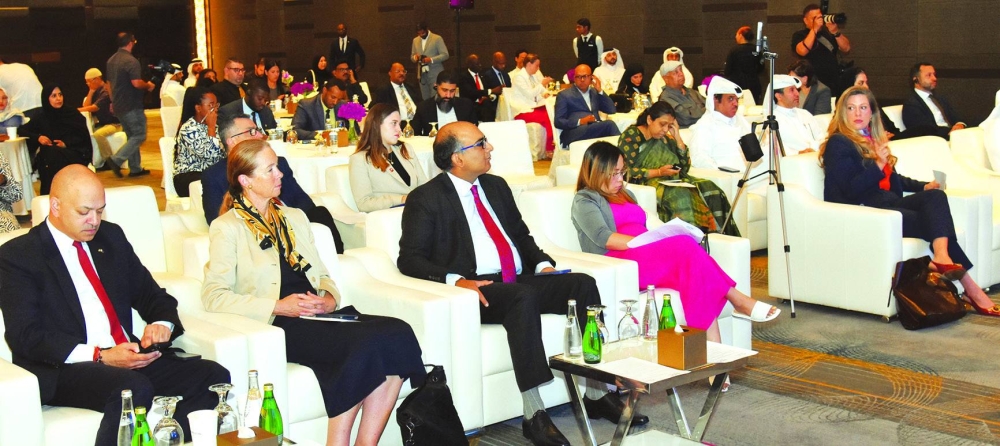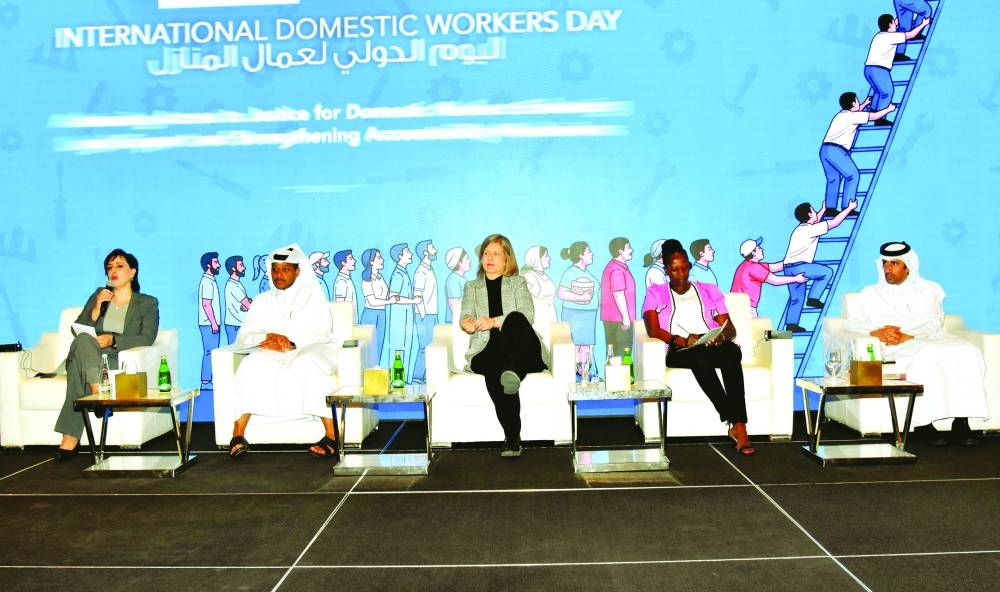Qatar has made significant progress in protecting the rights of domestic workers guaranteed in the Permanent Constitution, a senior official of National Human Rights Committee (NHRC) stated Monday.
“Qatar has made significant strides in protecting and promoting the rights of domestic workers which is reflected in the legal reforms culminating in the enactment of Law No (15) of 2017 regarding domestic workers,” said Dr Mohammed bin Saif al-Kuwari, vice-chairman, NHRC.
He was addressing an event organised by NHRC and the International Organisation for Migration (IOM) to mark the International Domestic Workers’ Day, observed annually on June 16.
Held under the theme ‘Advancing Access to Justice for Domestic Workers: Enhancing Legal Support and Strengthening Accountability Mechanisms,’ the event saw several discussions with participants from the Ministry of Labour and the Ministry of Interior along with several experts.
Dr al-Kuwari said: “There are about 168,626 individuals performing domestic work in Qatar, according to the 2022 Labour Force Survey report issued by the Planning and Statistics Authority in 2023. These individuals represent 8.39% of the total non-Qatari workforce, which has made this work an integral part of our economic and social life in Qatar. We continue our efforts in education, awareness and advocacy with our partners and stakeholders.”
He highlighted that these workers have left their communities in search of livelihood opportunities that ensure a decent life for them and sustainable development for their communities.
“From our perspective, protecting the rights of domestic workers is a protection of human rights guaranteed in the Permanent Constitution of Qatar, which stipulates that Qatari society ‘is based on the pillars of justice, benevolence, freedom, equality, and noble ethics.’ These are the fundamental components that reflect Qatari society’s vision of domestic workers as an integral part of the Qatari family, based on values of giving, respect and goodness for all its members,” he explained.
Roula Hamati, in charge of IOM Mission in Qatar, in her address emphasised the importance of the event, the first joint event of its kind between NHRC and IOM.
Hamati said: “Qatar has made remarkable progress in legislation aimed at protecting the rights of migrants in general, and domestic workers in particular. The labour policy reforms implemented by Qatar since 2020, starting with ensuring freedom of movement in the labour market, changing employers, and the minimum wage, have constituted a qualitative leap in working and living conditions for hundreds of thousands of workers including domestic workers.” The event included three accompanying sessions. The first session addressed legal pathways and institutional frameworks, with presentations by Nasser Marzouq Sultan al-Marri, director of the Legal Affairs Department, NHRC who provided a presentation from the Committee, and Captain Mohammed Nasser al-Jaber, from the Research and Follow-up Department at the Ministry of Interior, whose speech included a presentation on the protection and redressal mechanism for domestic workers in vulnerable situations.
Dr Lena Moller from Qatar University’s College of Law discussed the challenges and opportunities in implementing the 2017 Domestic Workers Law and international best practices and Margaret Kabue, chairperson of the Kenyan Domestic Workers Association also presented her perspectives at the session. The second session focused on enhancing accountability mechanisms; improving law enforcement and strategic co-ordination for legal assistance and identifying policy and recommendations to promote justice. The session saw the participation of several officials and experts. The closing session covered a summary of the main points of the discussion, compilation of its outcomes, reaffirmation of stakeholder commitments, and identification of next steps and concluding remarks by the IOM and NHRC.

Dr Mohammed bin Saif al-Kuwari addressing the event in Doha, Monday. PICTURES: Thajudheen

Some of the dignitaries at the event.

A panel discussion during the programme.

